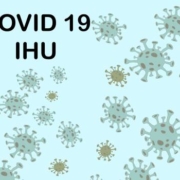Scorpion Therapeutics and AstraZeneca partnered to develop precision medicines against previously hard-to-target cancer proteins.
The newly discovered COVID-19 variant, dubbed IHU (also known as B.1.640.2), is the latest in a long string of variants as the SARS-CoV-2 virus inches closer to either becoming endemic or burning itself out.
Biogen Inc.’s Aduhelm – approved by U.S. regulators during 2020 for the ability of the Alzheimer’s drug to reduce amyloid brain plaques – also lowers levels of a second protein that accumulates in the brains of people with the disease, according to new data released by the company on November 11.
Novartis forged a collaboration with U.K.-startup Dunad Therapeutics to develop next-generation targeted protein-degradation therapies in a deal valued at up to $1.3 billion.
Japan’s Shionogi & Co. Ltd. said on Oct. 20 the company started a Phase II/III clinical trial for the drugmaker’s Covid-19 vaccine candidate.
ChemoCentryx Inc. said on Friday the U.S. health agency approved the company’s lead drug for treating a rare, fatal autoimmune disease, sending the biopharmaceutical company’s shares up by more than 70 percent.
Protein found on infected cells protects virus from immune system; remdesivir helps prevent hospitalization
Antivirals, CD47 Protein, Cells, Chile, Coronavirus Disease (COVID-19) Pandemic, COVID-19 cases, Europe, Gilead, Hospitalized COVID-19 Patients, Immune System, Infected Cells, Life Expectancy, Proteins, Remdesivir, Severe Covid-19, United States, World War IIA protein called CD47 that helps damaged cells avoid destruction by the immune system may be contributing to severe cases of Covid-19, researchers suggested in a report. In other news, Gilead Sciences Inc.’s intravenous antiviral drug remdesivir helped keep high-risk Covid-19 patients out of the hospital in a randomized trial.
Monoclonal antibodies are playing a key therapeutic role in the treatment of some Covid-19 patients, but new research suggests that nanobodies derived from llamas could provide an alternative to monoclonal antibodies through a more effective delivery method—inhalation.
Research Roundup: Link Between Herpes Simplex Virus and Neurogenerative Diseases Gets More Support
Alzheimer’s disease, Clinical Trials, COVID-19 booster shots, Dementia, Herpes Simplex Virus, Medical Journals, Molecules, Multiple Sclerosis, Myelin, Nature Communications, Neurogenerative diseases, Peptides, Proteins, R&D, Rice University, The Lancet, University of Houston, University of Illinois at ChicagoResearchers at the University of Illinois at Chicago published what they are calling a “first of its kind study” that found a possible direct link between neurodegenerative diseases and the herpesvirus.
AC Immune and Genentech announced that their Phase II Lauriet trial of semorinemab in mild-to-moderate Alzheimer’s disease hit one of the study’s co-primary endpoints.









